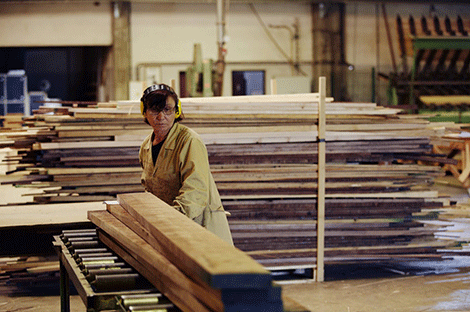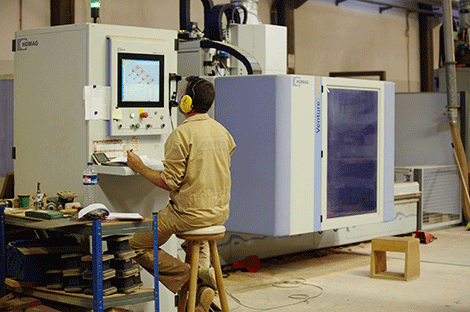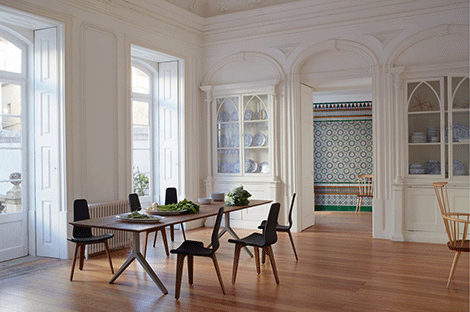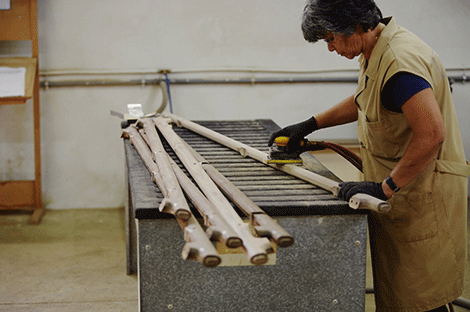
An internal wood grading system is entrusted to De La Espada’s craftspeople, who make many of the decisions about the high end furniture they produce
As a week of Milan’s Salone furniture festivities draws to a close, we’ve been sucked in by the calmness of De La Espada‘s behind the scenes look at its manufacturing hub in Portugal.
Away from the bustle of Milan, the buyers meetings and the parties, De La Espada’s team of craftspeople take pride in their work, applying their expertise to create some of the most beautiful furniture around, for designers like Matthew Hilton, Autoban, Neri&Hu and Studioilse.
Staff, comprising of 50 per cent women, have varying expertise including traditional skills such as cabinetmaking, joinery, upholstery, selecting timber, as well as 3D CAD drawing, and both operating and programming CNC machinery.
It’s the craftspeople that the company trusts to take intelligent decisions at every stage of manufacture, to ensure the highest quality product, both structurally and aesthetically.
“We use only premium grade planks, yet we apply an internal grading system as well, where our team sorts the wood further to achieve De La Espada standards for use,” explains a spokesperson.
“Characteristics including colour consistency and the size/quantity/placement of knots are taken into consideration, and determine for which part of a product the plank will be used; what we deem to be lower grade timber is used in hidden/structural areas, while the finest cuts of timber will be used for the most visible parts of a product.
“Working like an artist, a craftsperson chooses the sequence of planks on a tabletop or across the face of a chest of drawers to ensure it is the most visually pleasing.
“In addition to aesthetic decisions, our team must assess each unique plank of timber to determine the order and speed of operations that will best maintain its structural integrity.
“They also suggest improvements to manufacturing processes to help us optimise the way we make furniture. De La Espada has a philosophy of continuous improvement, always bettering the build quality, functionality and detailing of our products, and our craftspeople play a key role in implementing this.”
Every person in the factory works both independently and as part of a team, combining expertise and responding to challenges thoughtfully and effectively – not only the best way to create superior products, but it also creating a feeling of community.
This communal sense carries through to the factory dining room, where twice daily, its craftspeople gather around communal tables to enjoy family style meals cooked on a wood-fired stove.

3D files and CNC machining play a big part in the speed of the process

Products such as these, by British designer Matthew Hilton, are produced in De La Espada’s Portuguese factory

Hand finishing the wood is a skilled practise






